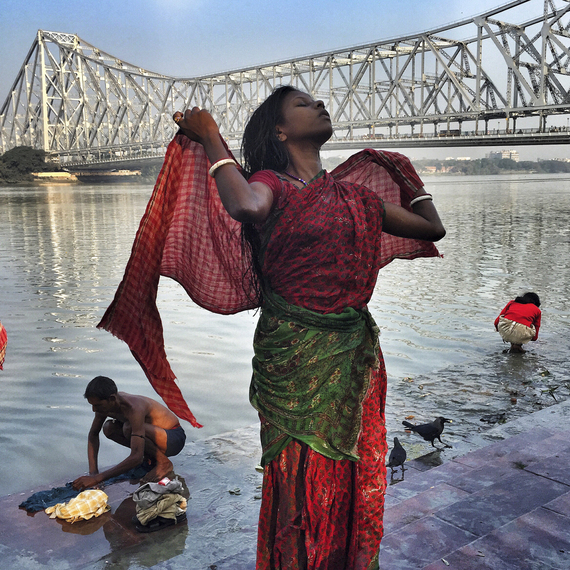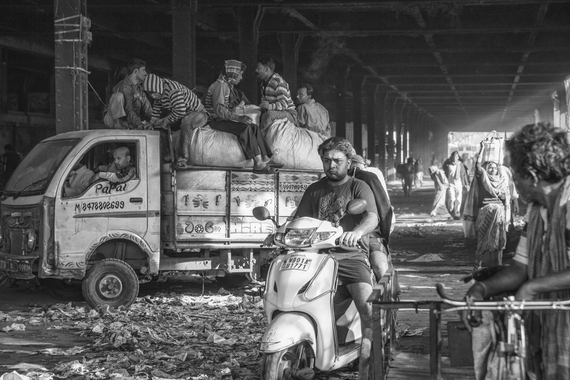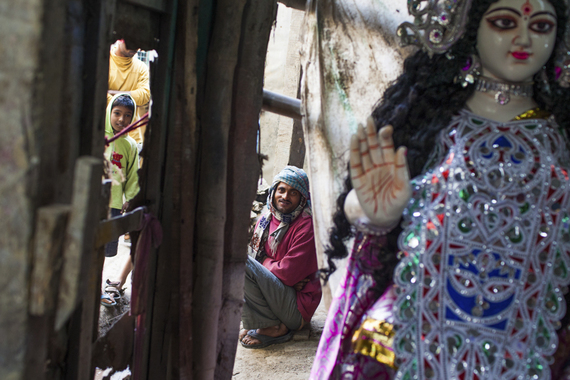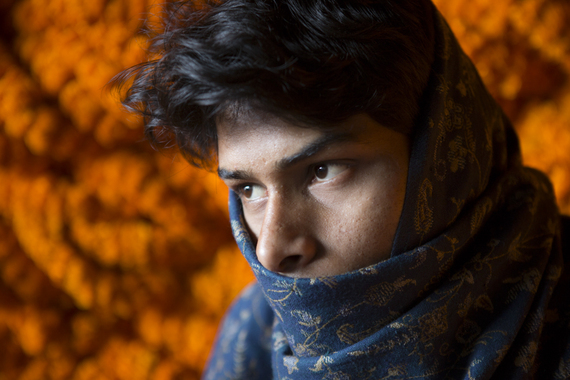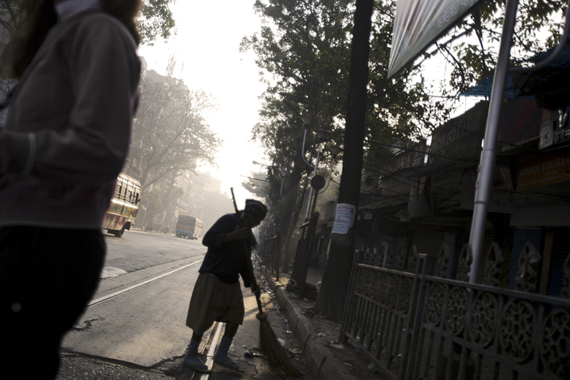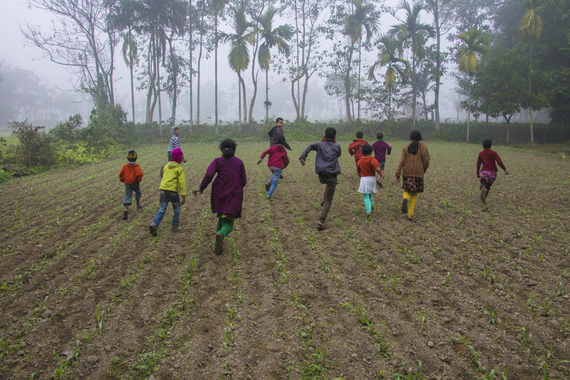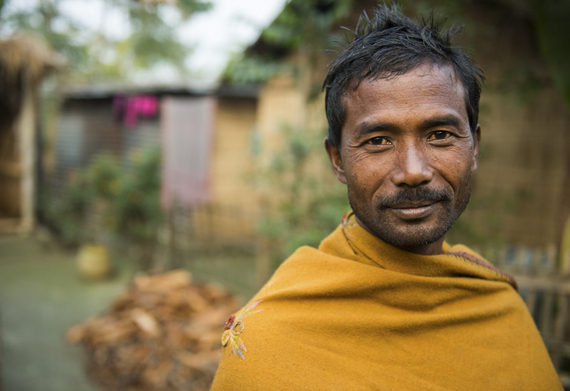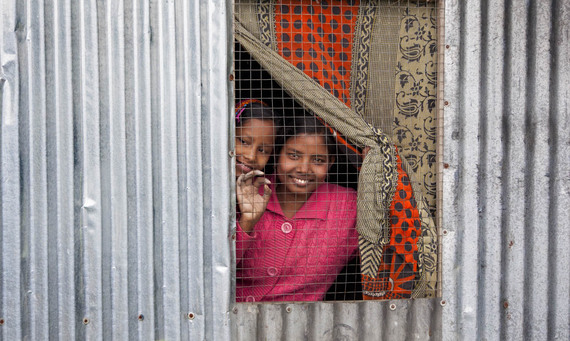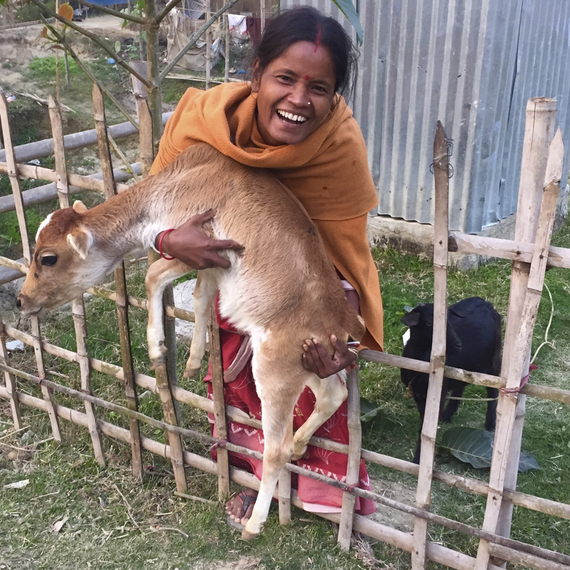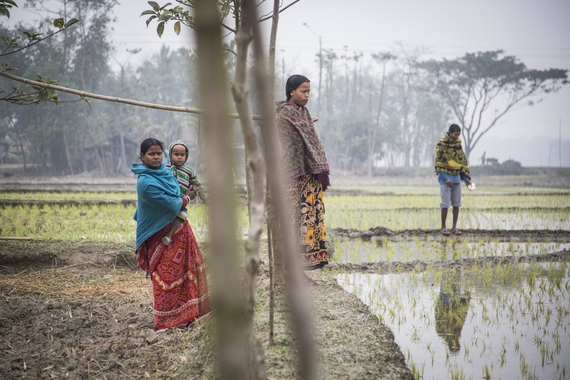I like this guidance: "Never turn down an adventure without a good reason."
The older we get, the more we seem to distance ourselves from the potential for real adventures. We insulate ourselves in our communities and in our social circles, and the chance for stepping into the fast lane of the unknown becomes increasingly uncomfortable and unlikely. However, adventures do come to us out of the blue, often unbidden and sometimes even unconsciously. And when we say "yes" to travel into the exotic, harsh and exciting, we are usually left feeling more alive than before.
India is a door into a world that is so bright, so pungent, so loud, and so assaulting that it often scares people away. Its otherness is intimidating. The sensory overload that is India creates worry that one won't find a familiar human thread and thereby lose one's balance in the tumult. Ed Kashi and I led a PhotoPhilanthropy workshop to just such a place, Kolkata, followed by a flight north to West Bengal, to do a photo shoot for Landesa. Sensory overload: check. Emotional stimulation and challenge: check. Adventure and personal rewards: big check.
A frame for me is the Susan Meiselas observation: "The camera is an excuse to be somewhere you otherwise don't belong. It gives you both a point of connection and a point of separation." Our first several days were spent in the streets, festivals and brickyards of Kolkata. We were fortunate to be there on Republic Day photographing the rigid angles and polished brass of military parades. We caught the festival day of Saraswati, the voluptuous Goddess of Knowledge, which has become an "Indian Valentine's Day" with the kids released from school and sauntering the river promenades, the girls brilliant as butterflies in their very best saris and brilliant earrings. We watched as these same goddess figures that we had seen meticulously painted and dressed a few days before, being worshipped with songs and prayers, and then lovingly dunked into the Hooghly River, head first. Charged with an assignment by Ed to shoot color in the flower market, we were moored emotionally as we saw poverty, garbage and neglect on a new scale. When we visited the brickyards, we witnessed an ancient craft completely untouched by modern technology or by child labor laws. Everywhere, we looked through our lenses and saw hustle, beauty, and community. Ed suggested we photograph "people being, not doing."
Flying out to Bagdogra in the reaches of West Bengal was a welcome transition away from the urban intensity. We'd arranged to shoot with LANDESA, a Seattle-based organization working to secure land rights for the world's poorest people. The idea was to get our photographers into the field, shooting with a purpose, and to create an image bank for Landesa to use for its visual promotions.
India has more poor people than does anywhere else on earth, and the greatest predictor of poverty is not caste or illiteracy, it is landlessness. These landless tend to be day laborers and tenant farmers, often migrating with the seasons, thereby disrupting their sense of community and their children's stability. Landesa works in partnership with the Indian Government to move such families into permanent, privately owned homes on "micro-plots" of land, allowing the families financial stability and an investment in property that is their own.
We photographed the Landesa sites using the theme HOME as our guide, which is both universal and uniquely individual. What makes a place a home in rural West Bengal, especially for those who have never had the privilege of owning their own home before? What makes Surita's home unique to her just as my home is my very own, and what is the detail shot that will reveal this? It seemed a wonderful assignment to shoot.
Landesa also directed part of our group to photograph their Girls Project, a program aiming to shift community perceptions of girls from girls-as-liabilities to girls-as-assets. The girls are incentivized to stay in school longer, to avoid early marriage, and to become more productive on the farm with new techniques to boost family income. These tools keep girls valued within a family and keep them out of the lure of human traffickers.
What we found in these newly-established villages was peaceful, orderly and highly inspiring: hundreds of kids biking off to a school on sandy paths under palm trees; cattle and goats noisy in the distance; bright saris flapping on the clothes line; fat carrots and gorgeous greens being carted to the local market. There is electricity running overhead, and we glimpse the occasional TV. The houses are tin-roofed and solid, and immaculately kept. The girls confidently look you in the eye and tell you about their college plans. There is a lot that is working in these new communities.
We were so impressed and soothed to find our balance once again, with that thread of humanity in easy reach. The issues of poverty are infinitely complex, and our focus for the moment is very narrow. Still, with cameras in hand, it was easy in this place, a place "we otherwise don't belong", to engage with remarkable and lovely people, and to witness solid improvement towards social stability. Landesa will tell you that they have moved 430,000 people into land ownership in India. We can tell you about the nine families we were privileged to meet and spend the day with, whose lives seem stable and happy.
